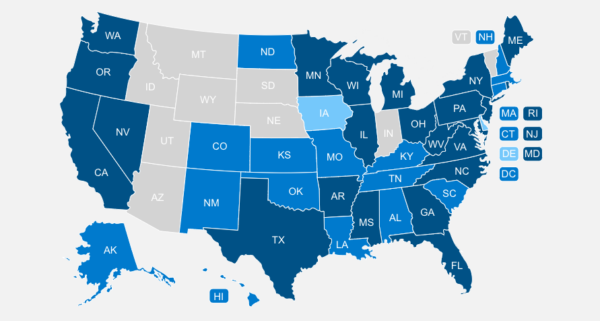How to Register for Charitable Solicitation
How to Register for Charitable Solicitation in New Hampshire: A Simple Step-by-Step Guide
At a Glance
Most nonprofits operating in New Hampshire must register for charitable solicitation with the state’s Charitable Trusts Unit within 6 months of beginning charitable activities. The registration requires submitting Form NHCT-11 along with supporting documents and a $25 filing fee to the New Hampshire Department of Justice. While initial registration doesn’t require renewal, organizations must file annual reports (Form NHCT-12) to maintain good standing.
Navigating the charity registration process can feel overwhelming when you’re busy running your organization and serving your mission. Many nonprofits don’t realize they need this crucial nonprofit license until they’ve already started fundraising—potentially putting them at risk for penalties. Fortunately, understanding the charitable solicitation requirements doesn’t have to be complicated.
This step-by-step guide breaks down exactly what you need to know about registering in New Hampshire. We’ll walk you through the entire process, from determining if you need to register to submitting your completed application. You’ll also discover how charitable registration services can streamline this process, saving you time and preventing costly mistakes while ensuring your filings are prepared correctly the first time.
What Is Charitable Solicitation and Why It Matters
Charitable solicitation forms the backbone of nonprofit fundraising efforts across the country. Understanding what this process entails and why it’s regulated in New Hampshire can save your organization from potential legal headaches and financial penalties.
Definition of charitable solicitation
Charitable solicitation refers to any request made for financial support of a charitable mission or program. This concept extends far beyond traditional fundraising pitches to encompass various interactions between your organization and potential donors. Essentially, whenever your nonprofit actively asks for donations, you’re engaging in charitable solicitation.
- Direct mail campaigns
- Email fundraising appeals
- Social media donation requests
- Website “Donate” buttons
- Crowdfunding campaigns
- Fundraising events
- Text message donation requests
Many nonprofits don’t realize that these everyday fundraising activities trigger legal requirements. Charitable registration services can help you identify which activities count as solicitation in New Hampshire’s legal framework, providing clear guidance on complex regulatory triggers.
Why registration is required in New Hampshire
New Hampshire law requires charitable organizations to register with the state’s Charitable Trusts Unit (CTU) and file annual reports unless exempt. Registration helps protect donors and promotes transparency.
The New Hampshire Attorney General has authority to investigate charitable trusts, solicitations, and sales promotions to ensure regulatory adherence. Consequently, failing to meet requirements can result in enforcement actions, including civil penalties and orders to cease solicitation.
Furthermore, registration requirements apply to both New Hampshire-based charities and out-of-state organizations with “reasonable minimum contacts” to the state. According to the Charitable Trusts Unit’s guidance, an out-of-state charity has “reasonable minimum contacts” if it conducts more than minimal operations in New Hampshire, specifically targets New Hampshire residents for donations, or receives donations from New Hampshire residents on a repeated and ongoing or substantial basis.
Organizations seeking professional guidance through this process can work with nonprofit regulatory experts who provide personalized assistance and ensure all state requirements are met accurately and on time.
Overview of the NH Department of Justice’s role
The New Hampshire Department of Justice’s Charitable Trusts Unit (CTU) oversees charitable organizations operating in the state. New Hampshire became the first state to create an office dedicated to oversight of charitable trusts and organizations in 1943.
Today, the CTU’s mission focuses on protecting the public’s interest in organizations and assets committed to charitable purposes in New Hampshire. They accomplish this through three primary activities: effective registration, education, and enforcement.
The Attorney General, through the CTU, has the authority to investigate charitable trusts, solicitations, and sales promotions at any time to determine whether they meet legal standards. During such investigations, the Attorney General may require relevant parties to produce documents, evidence of assets or liabilities, and other information related to the charitable entity’s operations.
For organizations struggling with the complexities of state-by-state requirements, professional charitable registration services can provide valuable assistance with maintaining regulatory adherence across multiple jurisdictions through dedicated renewal management and centralized tracking.




